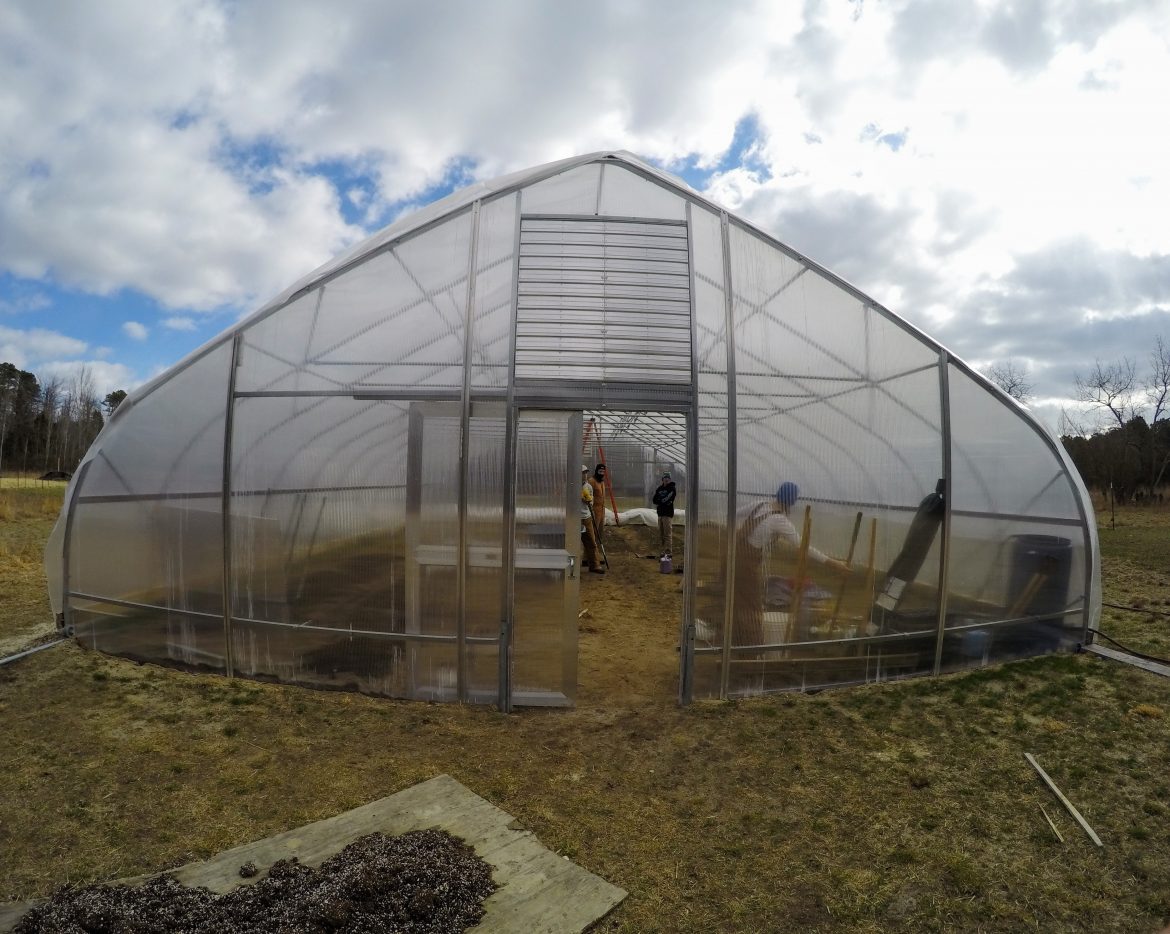Imagine knowing that when you graduate from college, you have the skills to run your own profitable farming business. All you need to start is a small loan for equipment and a patch of land – as little as an acre would do.
It might seem like a fantasy for a lot of today’s undergraduates who feel buried under student loans and job uncertainty. But a project at Stockton University is working toward giving students a real-life, tangible profession.
“Land is not hard to get to farm – it’s hard to get to own, but it’s not hard to get to farm,” said Ron Hutchison, an associate professor of sustainability and biology who also helps coordinate Stockton’s Sustainable Farm.”We’d really like to send our students out with a checklist of things that they need: If you can get a loan from the bank for $40,000 and you have access to land, here’s the tools you need, have at it.”
Students can work on the Stockton farm as interns, earning credits for courses, and learning skills that they could use professionally. Hutchison said the longer-term goal is to learn how to farm as efficiently as possible on the land that is available in the area, and to pass that knowledge on to students. With a $40,000 loan for tools, and one to two acres, it should be possible to pay back that money within a couple of years, he said.
This type of farming is called French Intensive, explained Cat Clarke, Stockton’s sustainability coordinator. There are small farms set up under this model that can be run by just one person, she said. “There are people doing this. We’re trying to work off their model and fit it to our climate, growing on one and a half to two acres.”
Right now, on a corner of the Stockton University campus in Galloway Township, Clarke, Hutchison and a team of interns are growing varieties of spinach and other greens in a new greenhouse that they recently installed. The greenhouse is on rails and they are going to put more down so they can move it from one part of the field to another as needed.
They are growing grains to see what works best in the high-acid pinelands soil – with a dream of maybe helping out a local brewing industry one day. And they are doing a lot of composting, thanks to an on-campus project and help from the pulp from Greens & Grains’ juices and smoothies and coffee grounds supplied by ROOTS Craft Cafe at The Exchange.
“We’d like to be able to use compost to make the soil actually retain carbon, so it becomes a sink for atmospheric carbon in the soil and we can both grow food and help the climate at the same time,” said Hutchison.
Students started running the farm in 2012 with a small grant from Stockton. Last year, Hutchison and Clarke came on board to provide more guidance to the students. They produce and sell vegetables as well as running experiments, so the students also learn about farm sales.
And they have some big challenges. There is no water or electricity on the farm. One student intern now is working on a solar project that will help power a blower for the greenhouse. Other students have helped build and maintain a water tank system to store rainwater and irrigate some of the fields.
Being off the grid appeals to some of the students, Hutchison and Clarke agreed.
“We could easily run a line (for water), but the challenge kind of makes it really cool. The same with electricity,” said Hutchison. The farm does have one piece of machinery – a tiller – that uses gas, but beyond that the farm runs as a real-life experiment in sustainability.
Watch our video from the farm here:
And see our video of the Greens & Grains pulp production process here:
